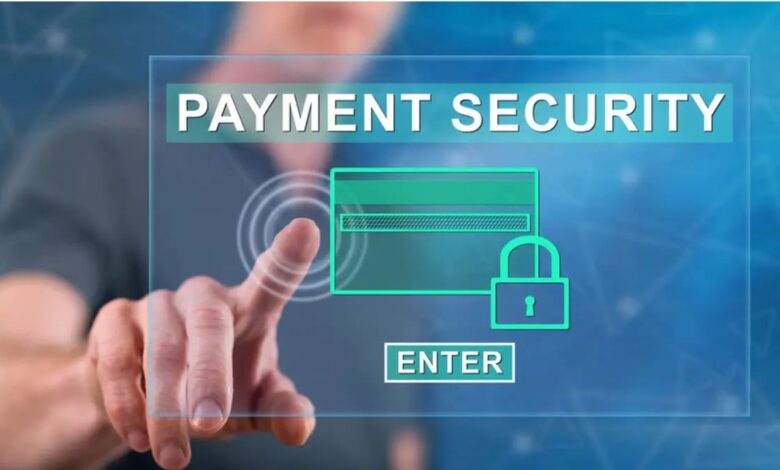Important of Payment Security For Payment Processors

Introduction to Payment Security
Welcome to the digital era, where online payments have revolutionized the way we transact! In the world of e-commerce and electronic transactions, ensuring payment security is paramount. As technology advances, so do the methods used by cybercriminals to exploit vulnerabilities in payment processing systems. Join us as we delve into the importance of payment security for payment processors and explore how utilizing secure payment processors can safeguard your financial transactions from potential risks and threats.
Types of Payment Processors
When it comes to payment processing, there are several types of payment processors that businesses can choose from. One common type is traditional merchant account providers, which offer services for credit and debit card transactions. These processors often charge fees based on a percentage of the transaction amount.
Another popular option is third-party payment processors like PayPal or Stripe, which allow businesses to accept payments without setting up a dedicated merchant account. These platforms are known for their ease of use and quick setup process.
For online businesses, there are also options like payment gateways, which securely transmit transaction data between websites and banks. These gateways help ensure that sensitive information is protected during online transactions.
Additionally, mobile payment processors have become increasingly popular, allowing customers to make payments using their smartphones or other mobile devices. This convenient method has gained traction in various industries including retail and food service.
Advantages of Using Secure Payment Processors
When it comes to payment processing, using secure payment processors offers a range of advantages that benefit both businesses and their customers.
Secure payment processors encrypt sensitive data during transactions, ensuring that financial information is protected from potential cyber threats. This not only builds trust with customers but also reduces the risk of fraud.
Additionally, secure payment processors often provide advanced fraud detection tools and compliance measures to help merchants stay ahead of evolving security threats.
By utilizing secure payment processors, businesses can streamline their operations by offering various payment options securely and efficiently. This enhances the overall customer experience while increasing conversion rates.
Moreover, partnering with reputable secure payment processors can also improve a company’s reputation in the market as customers feel confident in conducting transactions knowing their information is safe and protected.
Risks and Threats in the Payment Processing Industry
The payment processing industry faces various risks and threats that can compromise sensitive financial data. Cybercriminals are constantly evolving their tactics to exploit vulnerabilities in payment systems, leading to potential data breaches and fraud.
Phishing scams targeting unsuspecting customers or employees can result in stolen login credentials, allowing hackers access to payment information. Malware and ransomware attacks pose a significant threat by encrypting data until a ransom is paid.
Inadequate security measures within payment processors can leave them susceptible to insider threats or employee negligence, risking unauthorized access to valuable transaction data. Additionally, the rise of mobile payments has introduced new challenges in securing transactions conducted through smartphones and other devices.
Staying ahead of these risks requires continuous monitoring, regular security updates, and robust encryption protocols to safeguard sensitive payment information from malicious actors seeking unauthorized access.
Importance of Implementing Strong Security Measures
In the fast-paced world of payment processing, implementing strong security measures is crucial to safeguard sensitive financial information. With cyber threats on the rise, ensuring that transactions are secure and protected from potential breaches is paramount for both businesses and consumers alike.
By incorporating robust security protocols, payment processors can instill trust and confidence in their clients, fostering long-term relationships built on reliability and integrity. Strong encryption techniques and multi-layered authentication processes serve as barriers against unauthorized access or fraudulent activities, enhancing overall data protection.
Moreover, adhering to industry standards such as PCI DSS compliance demonstrates a commitment to upholding the highest levels of security within the payment ecosystem. Proactive monitoring of transactions and real-time fraud detection mechanisms further fortify defenses against evolving cyber threats that seek to exploit vulnerabilities in payment systems.
Prioritizing the implementation of strong security measures not only safeguards sensitive information but also reinforces a reputation for excellence in maintaining secure payment processing environments.
Best Practices for Secure Payment Processing
When it comes to secure payment processing, implementing best practices is crucial for safeguarding sensitive financial information. One of the key practices is to encrypt data during transmission and storage, ensuring that any information shared between parties is unreadable to unauthorized users.
Another important practice is to regularly update software and systems to patch vulnerabilities and stay ahead of potential security threats. Conducting routine security audits and assessments can help identify weak points in the payment process flow that may be exploited by cybercriminals.
Furthermore, implementing multi-factor authentication can add an extra layer of security by requiring users to provide multiple forms of verification before completing a transaction. Training employees on how to spot phishing attempts and other social engineering tactics can also help prevent data breaches within an organization.
By following these best practices for secure payment processing, businesses can mitigate risks associated with online transactions and protect both their customers’ sensitive data and their own reputation in the market.
Payment Security and Credit Card Processors
Payment security is a top priority for credit card processors as they handle sensitive financial information on a daily basis. These processors play a crucial role in ensuring that transactions are secure and protected from potential threats. By implementing robust security measures, credit card processors help safeguard both small businesses and consumers from fraud and data breaches.
One key aspect of payment security for credit card processors for small businesses is encryption technology, which helps to scramble data during transmission, making it unreadable to unauthorized parties. Additionally, tokenization is another important tool used by processors to replace sensitive cardholder information with unique tokens, further enhancing security.
Credit card processors also adhere to strict compliance standards such as PCI DSS (Payment Card Industry Data Security Standard) to ensure the protection of payment data. Regular audits and assessments help maintain a high level of security and reduce the risk of vulnerabilities being exploited.
Conclusion
The importance of payment security for payment processors cannot be overstated. With the increasing risks and threats in the industry, it is crucial for businesses to implement strong security measures to protect their customers’ sensitive information. By using secure payment processors and following best practices for secure payment processing, businesses can mitigate risks and build trust with their customers.
Choosing a reputable credit card processor that offers interchange plus pricing and merchant services is essential in ensuring secure transactions. Stay informed about the latest trends and technologies in payment security to stay ahead of potential threats.
Remember, investing in robust payment security not only protects your business but also safeguards your customers’ data, ultimately contributing to a positive reputation and long-term success.



